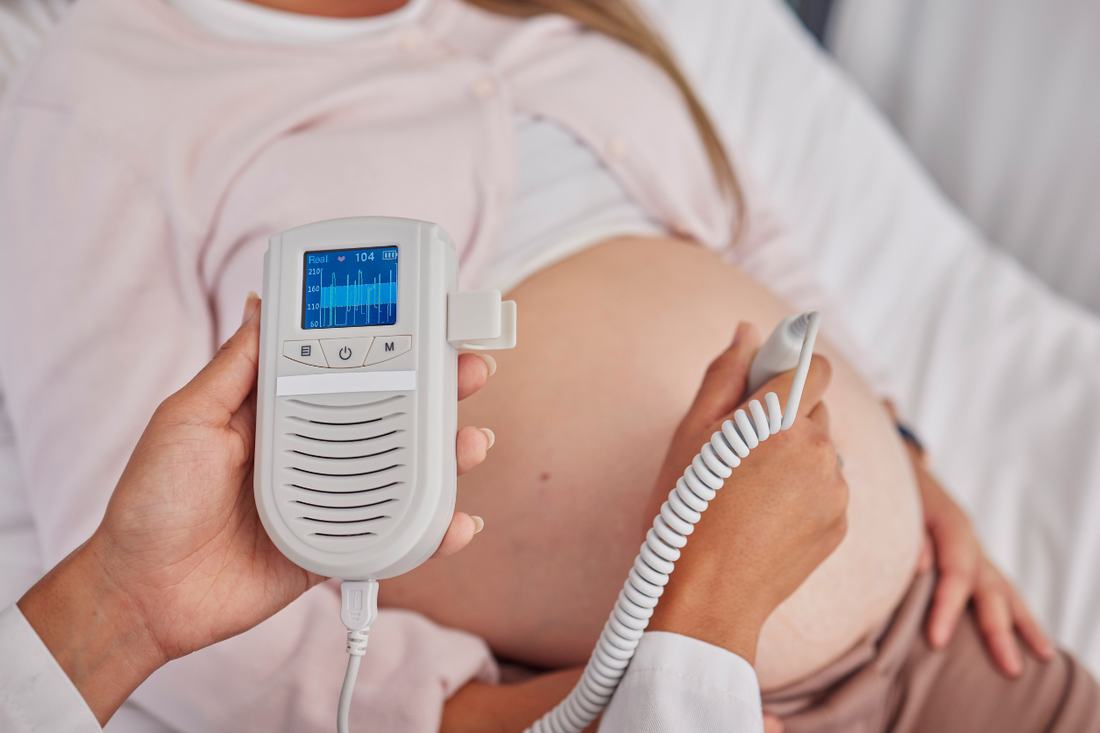Parents-to-be always need reassuring that their baby is still doing well during
pregnancy, which is why foetal dopplers are a great tool, as they can pick up a
baby’s heartbeat in seconds.
A foetal doppler is a handheld device that is akin to a small ultrasound machine
sending out high-frequency ultrasound waves, which can be used in a medical
setting or even at home.
When placed on the mother’s stomach, the ultrasound waves pass through the skin and bounce back when it detects changes in the movement of the foetus. These movements are translated into sounds, which is what can be heard over the device.
Therefore, it allows midwives, doctors and parents to hear the baby’s heartbeat, so long as the child is big enough.
As it is too difficult to detect any movement with a doppler before 14 to 16 weeks, it is not recommended to use one unless you are a trained medical professional, as this could give unnecessary anxiety to the mother and father.
Some women also have a tilted uterus, which makes it harder to hear the heartbeat, or the placental sounds are too loud to hear anything else. It may also be that the due date is wrong and the baby is younger, and therefore smaller, than initially thought.
Similarly, it is worth being careful using these at home without being trained first, as it could give false reassurance that the baby is ok even if they are not.
This is because it is difficult to distinguish the baby’s heartbeat from that of the mother or the pulsing of the placenta.
Although parents should be cautious using foetal dopplers themselves, this medical equipment is extremely useful during midwife appointments as part of a routine check, and during labour to make sure their heart rate is still healthy.

